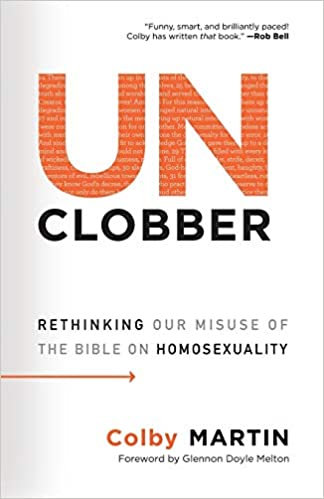The holidays are a time for celebration, but they can also be a time of great anxiety and conflict among families. This is especially true for many families of LGBTQ persons.
A grandparent recently told me he thinks his grandson is gay. But that’s not the problem. His angst comes from the in-laws who, he says, think that “homosexuals are going straight to hell.” What if this comes up at the dinner table? What if it comes up at Christmas? The effect of these words on a young person can be profoundly wounding.
I’m a Catholic educator. Not long ago, a Catholic teenager told me that she asked about gay people during a parish religious education class. “They go to hell. It will never change,” said the teacher. And during a recent conference, I asked an LGBTQ young person in the audience, “Has an adult ever said anything to you that was hurtful?”
Not only are these responses theologically and morally wrong, but they are also examples of the aggressive rhetoric that LGBTQ persons experience as spiritual harm.
“Yes,” the student responded. “My seventh-grade religion teacher said that gay people go to hell.” Ugh.
“I’m sorry that happened to you,” I said.
“It’s okay,” the student replied.
But it’s not okay. Not only are these responses theologically and morally wrong, but they are also examples of the aggressive rhetoric that LGBTQ persons experience as spiritual harm, often from adults who appear to speak for the church.
Good teachers of the faith must be competent in both their knowledge of Catholic theology and the skill of pastoral ministry. This is what the Second Vatican Council professed in its 1965 Decree on the Apostolate of the Laity. Catholic teachers and educators must be equipped with “learning and pedagogical skill [to impart] such education effectively” (no. 30). These special graces are not given to every aspiring teacher equally. Frankly, bad teachers should be counseled to find another way to serve the church.
Second, good teachers of the faith must understand and respect the power differential between themselves and the students. When a teacher speaks, their voice has the perceived authority of the Catholic Church. If this authority is wielded like a sword (even unintentionally), then it will cause damage that is difficult to repair.
In The Religious Dimension of Education in a Catholic School, from 1988, the former Congregation for Catholic Education noted, “Teachers should respond with patience and humility, and should avoid the type of peremptory statements that can be so easily contradicted” (no. 72). More simply, harsh responses and rash judgments harm both the students and the church.
Harsh responses and rash judgments harm both the students and the church.
Third, good teachers of the faith recognize that this work is different from teaching other subjects. It is not of human origin but emulates Christ, the unique and perfect teacher. We educate students in the classroom as Christ taught in his father’s house. We form students in the courtyard as Christ encountered his disciples on his travels. We also cooperate with students to participate in acts of service, as Christ fed the multitude with loaves and fishes.
In this complex dynamic of accompaniment, teachers of the faith continually balance knowledge with meaning, understanding with purpose, wisdom with value. In the 2020 Directory for Catechesis, the Pontifical Council for Promoting the New Evangelization wrote, “A catechesis … that sets up an opposition between the content and the experience of faith would show itself to be worthless” (no. 80). A teacher can ignite faith with fire or drench it with water.
To tell children that LGBTQ persons go to hell by default is indoctrinating them with bad theology. The doctrines of Catholic faith are clear:
- “God predestines no one to go to hell” (CCC 1037).
- “To die in mortal sin without repenting and accepting God’s merciful love means remaining separated from him for ever by our own free choice” (CCC 1033).
- “Although we can judge that an act is in itself a grave offense, we must entrust judgment of persons to the justice and mercy of God” (CCC 1861).
In short, hell is a consequence for those who stubbornly persist in sin and reject God’s grace and mercy. So, no, LGBTQ persons do not go to hell because of who they are. Instead, their accusers should take note: “Our Lord warns us that we shall be separated from him if we fail to meet the serious needs of the poor and the little ones who are his [children]” (CCC 1033).
Hell is a consequence for those who stubbornly persist in sin and reject God’s grace and mercy. So, no, LGBTQ persons do not go to hell because of who they are.
After the young person told me about their seventh-grade religion teacher, I asked, “How do you experience God in your life today?”
The student said, “That’s a good question. I’m still working on it. A different theology teacher taught me about how I can find God in my relationships with other people. I guess that’s where I am experiencing God right now, in my connections to people who care about me.”
For the holidays (and all days) remember: God loves you. Rejoice!




